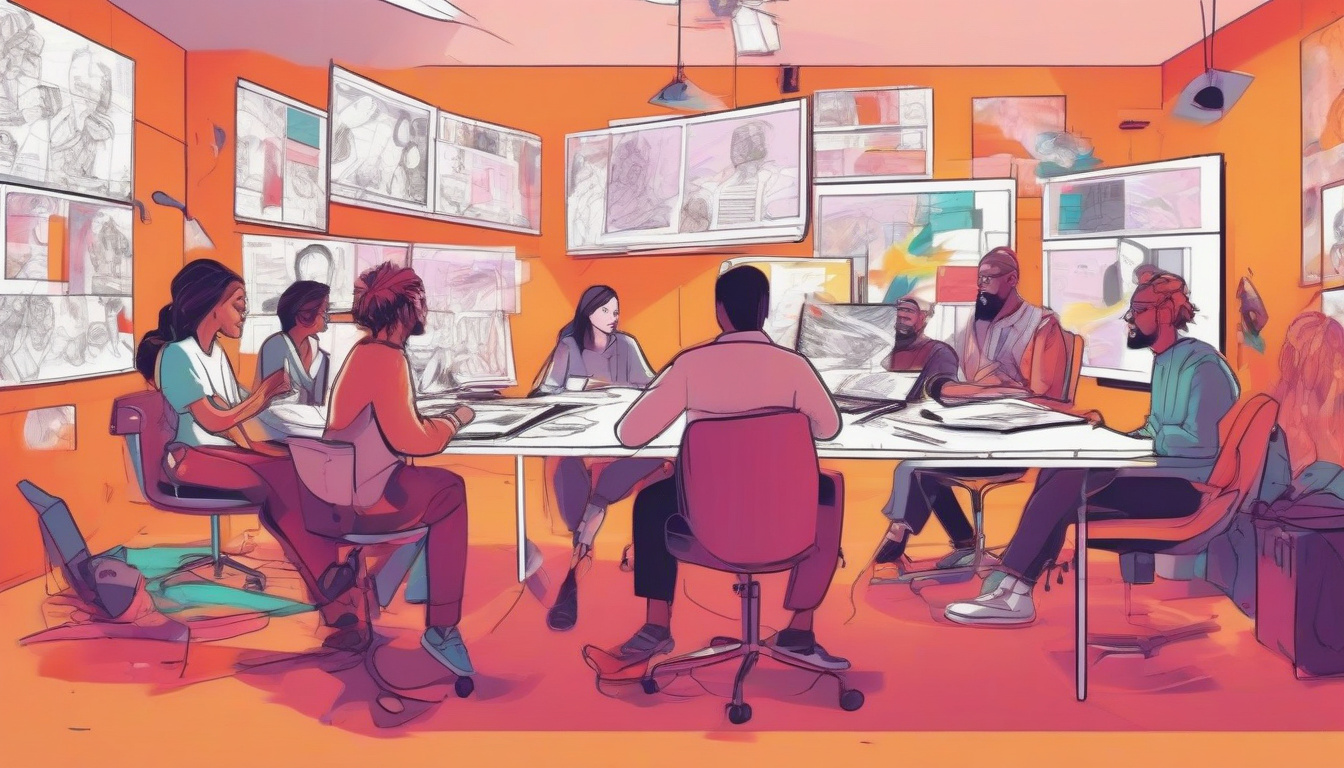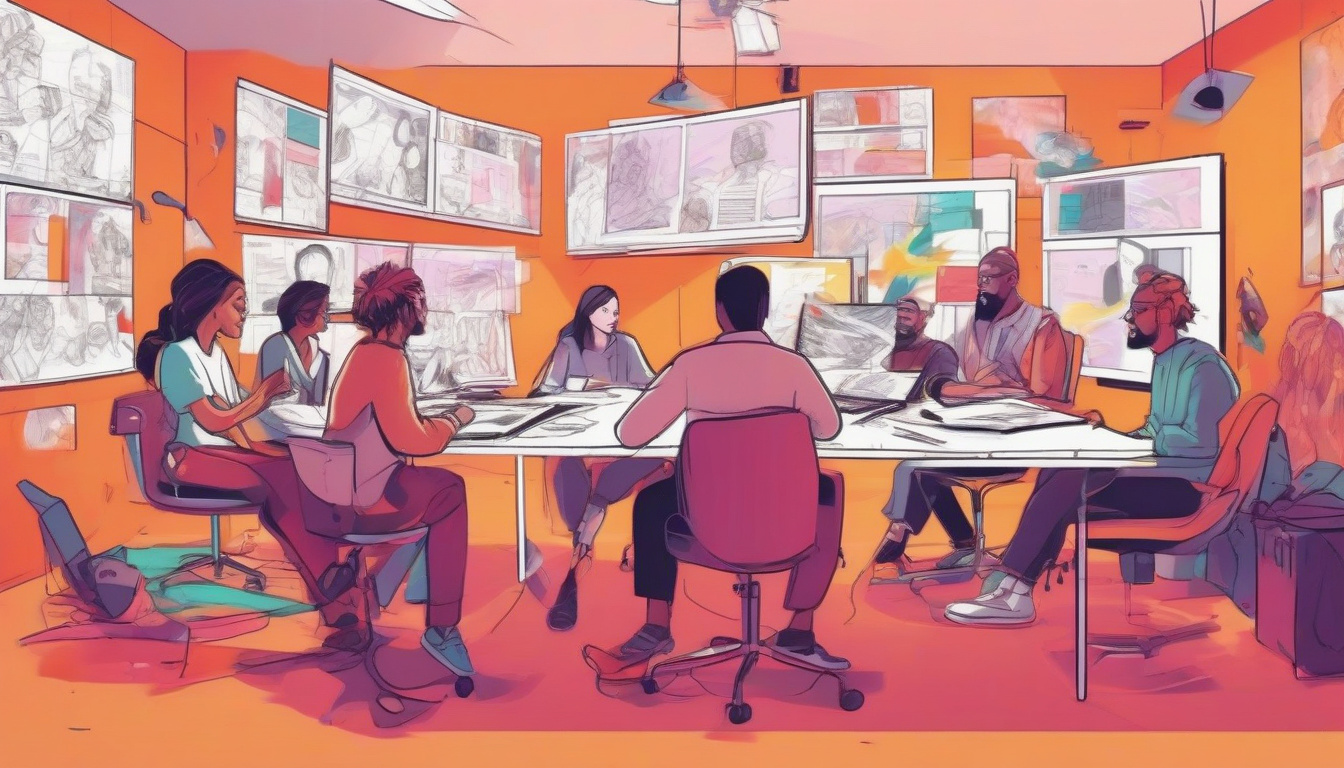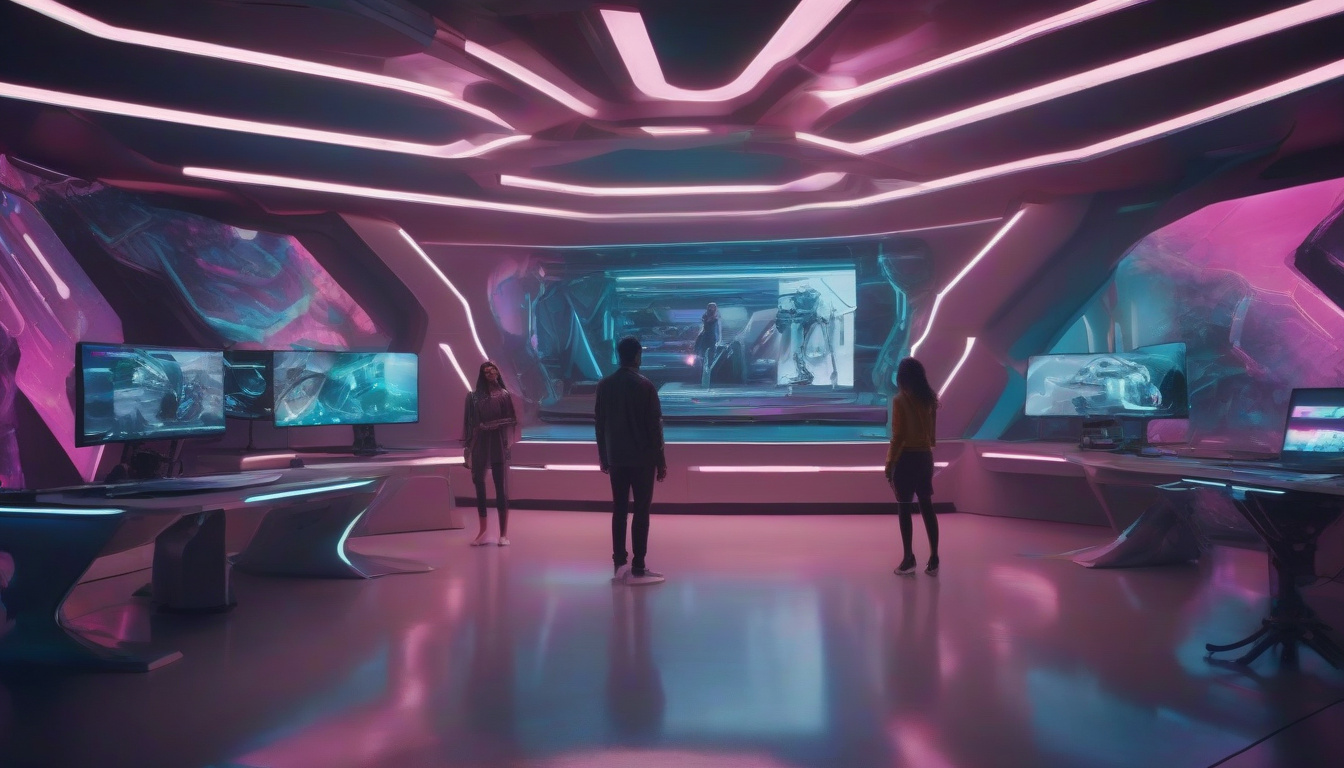
In an age where technology continues to redefine the boundaries of creativity, GPT-4 screenplay generation stands at the forefront of innovation in storytelling.
This advanced language model is transforming the way filmmakers approach screenplay writing, combining human ingenuity with artificial intelligence to unlock new creative possibilities.
By harnessing the power of GPT-4, writers can explore unique narratives, enhance their storytelling techniques, and ultimately craft more compelling screenplays.
This article delves into the impact of GPT-4 on creative writing, how it works, its benefits for filmmakers, real-world applications, and the ethical considerations that arise as AI collaborates with human creativity.
Get Professional Screenplay Coverage in Minutes, Not Weeks!

Key Takeaways
- GPT-4 is transforming the landscape of screenplay generation for filmmakers.
- The technology behind GPT-4 enhances creativity by providing innovative storytelling ideas.
- Filmmakers benefit from GPT-4’s ability to save time and generate unique script concepts.
- Case studies illustrate the successful integration of GPT-4 in real-world screenplay projects.
- While GPT-4 offers significant advantages, challenges and ethical considerations remain in AI-assisted writing.
Introduction to GPT-4 and its Impact on Creative Writing
In the ever-evolving landscape of artificial intelligence, GPT-4 stands out as a groundbreaking tool that is set to revolutionize creative writing, particularly in screenplay generation.
This advanced model, developed by OpenAI, showcases an impressive ability to understand context, generate dialogue, and craft intricate narratives that resonate with audiences.
For screenwriters and filmmakers, GPT-4 screenplay generation offers a unique opportunity to streamline the writing process, enhance creativity, and explore new storytelling avenues.
By harnessing the power of this AI technology, writers can experiment with diverse plotlines, develop compelling characters, and create professional-quality drafts with remarkable speed.
As the film industry continues to embrace digital innovation, understanding GPT-4’s capabilities will be essential for aspiring screenwriters looking to stay ahead in a competitive market.
How GPT-4 Works: The Technology Behind Screenplay Generation
GPT-4 screenplay generation is a remarkable technological advancement in the realm of artificial intelligence and natural language processing.
At its core, GPT-4 utilizes a deep learning model that processes vast amounts of textual data, enabling it to understand context, character development, and narrative structure.
This powerful model is built on a transformer architecture, which allows it to generate coherent and contextually relevant scripts for various genres.
When tasked with screenplay generation, GPT-4 analyzes existing scripts, learns patterns in dialogue, character arcs, and pacing, allowing it to create original content that adheres to traditional storytelling conventions.
By leveraging its impressive training on diverse datasets, GPT-4 can assist screenwriters by providing ideas, drafting scenes, or even completing entire scripts, making it an invaluable tool in the film industry.
‘Creativity is intelligence having fun.’ – Albert Einstein
Get Professional Screenplay Coverage in Minutes, Not Weeks!

Benefits of Using GPT-4 for Filmmakers
As filmmakers continue to explore innovative methods for storytelling and production, the emergence of GPT-4 screenplay generation offers a wealth of benefits that can transform the creative process.
This advanced AI technology provides filmmakers with the ability to brainstorm ideas, develop character arcs, and even create entire scripts at unprecedented speeds.
One of the key advantages of using GPT-4 is its capacity for generating diverse dialogue, allowing writers to experiment with different tones and styles while maintaining coherence throughout the screenplay.
Additionally, GPT-4 can help in identifying narrative structures and genres, making it easier for filmmakers to tailor their projects to specific audiences.
By streamlining the scriptwriting process, GPT-4 not only enhances creativity but also significantly reduces the time and effort involved in drafting screenplays, enabling filmmakers to focus on the more visceral aspects of filmmaking such as directing, cinematography, and editing.
Case Studies: Successful Screenplays Generated by GPT-4
In recent years, the emergence of AI technology has revolutionized various industries, and the realm of screenwriting is no exception.
With advancements in AI, particularly with tools like GPT-4, screenplay generation has reached new heights.
Numerous case studies illustrate the effectiveness of GPT-4 screenplay generation, showcasing its ability to produce coherent, engaging narratives that can captivate audiences.
For instance, a notable project involved a collaborative effort between human writers and GPT-4, where initial outlines were transformed into full scripts.
This case study highlighted how the AI not only enhanced dialogue but also injected unique plot twists that surprised and delighted the creative team.
Another example involved a writer seeking inspiration for a romantic comedy; using GPT-4, they managed to draft a complete script in a matter of days, demonstrating how AI can accelerate the writing process while still maintaining a human touch.
These real-world applications underline the substantial impact that GPT-4 screenplay generation can have, making it a valuable asset for aspiring screenwriters and industry professionals alike.

Challenges and Limitations of AI in Screenplay Creation
The integration of AI, particularly through GPT-4 screenplay generation, is transforming the landscape of scriptwriting, but it is not without its challenges and limitations.
One major hurdle is the inherent creativity required in storytelling.
While GPT-4 can produce coherent and structured scripts, generating truly original ideas or unique character arcs often proves difficult.
Additionally, AI models rely heavily on existing data, which means they can inadvertently reproduce clichés or overused tropes, undermining the originality that many writers strive for.
Moreover, the emotional depth—an essential element in screenwriting for engaging the audience—is often lacking in AI-generated content, as these systems operate on algorithms rather than personal experiences.
This reliance on data can also lead to issues with cultural sensitivity, as AI may not fully grasp the nuances of diverse narratives.
Consequently, while GPT-4 screenplay generation offers exciting possibilities for writers looking for a creative boost, it is essential to acknowledge these limitations, ensuring that human intuition and critical thinking remain integral to the screenwriting process.
The Future of Screenwriting: AI Collaborations and Ethical Considerations
The future of screenwriting is undeniably intertwined with advancements in technology, particularly through innovations like GPT-4 screenplay generation.
As writers increasingly turn to artificial intelligence for assistance, this collaboration has the potential to revolutionize the creative landscape of film and television.
GPT-4 can help generate ideas, craft dialogue, and even outline entire scripts, making the writing process faster and more efficient.
However, this burgeoning relationship with AI raises essential ethical considerations.
Questions about authorship, originality, and the implications of AI-generated content in the industry are at the forefront of discussions among screenwriters.
Balancing the benefits of AI collaboration with the importance of human creativity will be crucial as we navigate this new era in screenwriting.
Writers who embrace these AI tools can enhance their creative output, but they must also remain aware of the ethical boundaries that need to be respected in this rapidly evolving field.






